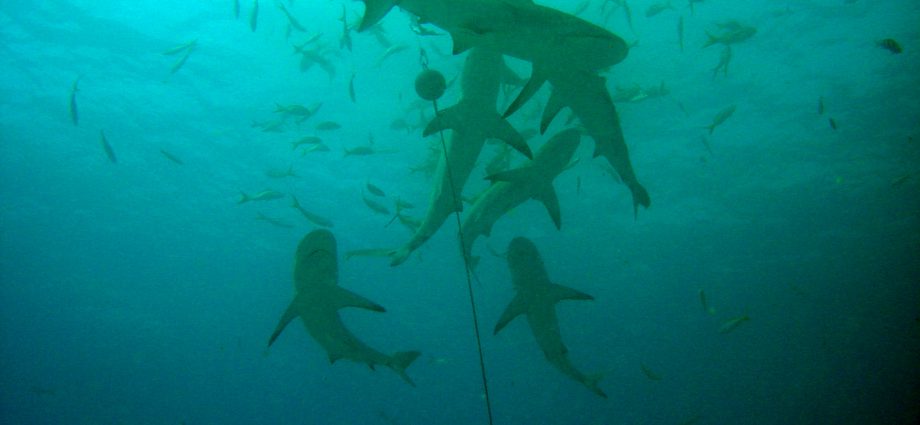No measure are needed to reduce shark conservation, says the Bahamas National Trust in reaction to concerned fishermen who see an increase in shark interactions while fishing, spearfishing and diving. The shark attraction industry brings in more than $100 million a year.
The Bahamas National Trust “understands the concerns expressed by fishermen,” but there is “no scientific research that supports an increase in shark populations” in The Bahamas, according to the press statement. However, the Bahamas National Trust agrees more studies and public education are needed on shark and turtle conservation, along with “reasonable solutions” to help protect both people and the marine resources “that we need for our very own survival”.
“Fishing and spearfishing are acts that attract predators,” the conservation agency’s release said. “With more humans increasingly going in the ocean and doing certain activities that will attract sharks, shark-human encounters will increase. More studies need to be conducted about the population of sharks and turtles in The Bahamas, likewise for all species. We need to conduct more studies and do a better job of engaging fishermen so that we get a clear understanding of what they are experiencing.”
Shark sanctuary
Sharks became fully protected in 2011, with 243,000 square miles of the Bahamian archipelago turned into a shark sanctuary. As a result, it is illegal to catch or harm any shark in The Bahamas. The island nation has become the “shark diving” capital of the world, with the marine animal bringing in an estimated $114 million to the country every year as people travel here to dive, film and interact with sharks.
The conservation agency furthermore said sharks play a crucial role in maintaining the balance of marine life from which humans benefit, especially in The Bahamas. Sharks help to keep marine animal populations healthy by removing the sick and injured, and by promoting greater fish diversity and healthier coral reefs.
Read more in The Tribune.

